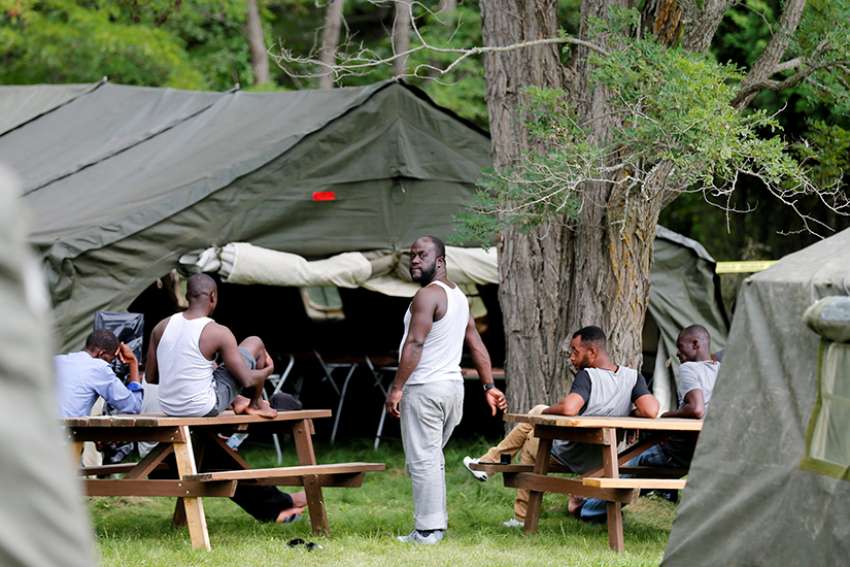Council of Churches wins standing in court case
By Michael Swan, The Catholic RegisterIn July the coalition of churches that includes Canada’s bishops and represents about 85 per cent of Canadian Christians, along with the Canadian Council for Refugees and Amnesty International went to the Federal Court of Canada asking the court to strike down the deal with the U.S. which bars most refugees from making an asylum claim at any of Canada’s land border crossings.
On behalf of a refugee claimant from El Salvador and her children, the three organizations argue that the agreement has endangered the lives and health of refugees who do not feel they can safely make refugee claims in the U.S.
“The plight and rights of human beings on the move are more important than rules that are enacted for the convenience of governments,” Jesuit Refugee Service director in Canada Norbert Piché told The Catholic Register in an e-mail.
Federal government lawyers had tried to get the Church and human rights groups thrown off the case with a motion asking they be removed as parties to the litigation. The federal court turned down the government’s motion on Dec. 12.
“The first question to ask is, why did the Canadian government want to prevent those three organizations from having standing?” said Piché.
The Safe Third Country agreement with the U.S. took effect in December of 2004. Each country declares the other safe for refugees and stipulates that refugees must make their claim for asylum in the first country in which they land.
Canadian officials monitor U.S. immigration courts to determine whether the U.S. system meets international standards under the 1951 United Nations Refugee Convention.
The Canadian Council of Churches, which includes the Canadian Conference of Catholic Bishops, Amnesty International and the Canadian Council for Refugees, won a similar case against the Safe Third Country Agreement in Federal Court in 2008. But that decision was overturned on appeal, not on the substance of the case but on a question of whether the organizations bringing the case to court had standing to make their legal argument against the agreement.
This time the churches and human rights organizations will be allowed to argue that by forcing refugee claimants to cross into Canada at places where there is no official border station, the agreement has the effect of endangering lives.
Would-be refugee claimant Mavis Otuteye died of hypothermia in a Minnesota farmer’s field trying to find her way across the border in May.
Ghanaian refugee Seidu Mohammed lost most of his fingers after walking into Manitoba in minus-20 degree weather on Christmas Eve last year. Mohammed was granted refugee status in Canada in May.
No date has been set for a hearing before the Federal Court. The case is widely expected to make its way eventually to the Supreme Court of Canada.
Please support The Catholic Register
Unlike many media companies, The Catholic Register has never charged readers for access to the news and information on our website. We want to keep our award-winning journalism as widely available as possible. But we need your help.
For more than 125 years, The Register has been a trusted source of faith-based journalism. By making even a small donation you help ensure our future as an important voice in the Catholic Church. If you support the mission of Catholic journalism, please donate today. Thank you.
DONATE

